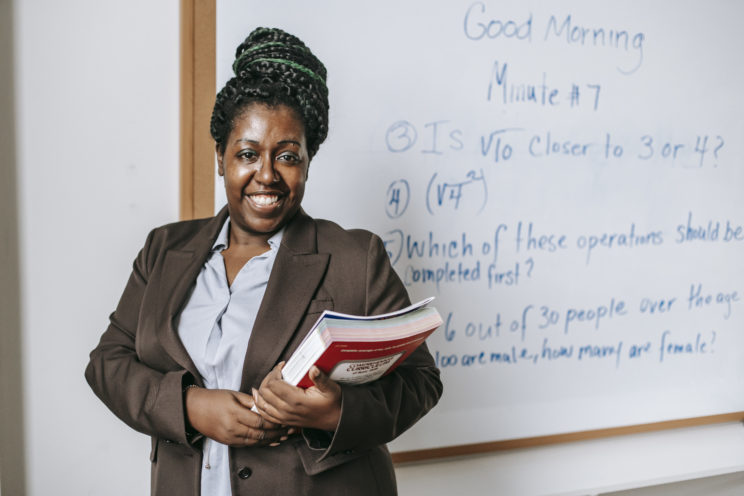
When Matt Lunsford decided to write on what it means to be a Christian in Mathematics, he modeled his extended essay, A Christian Mathematician’s Apology, after an earlier essay, A Mathematician’s Apology, by G. H. Hardy. This is the third of four parts, the first describing finding his vocation and the second on the integrated life. Building on his ideas of the integrated life, in this article Matt outlines his ideas of what “redeeming the discipline” looks like for him as a mathematician.
While freedom of exploration and source of motivation are clear distinctives for the Christian mathematician, I do not believe that either is the core distinction. Christians are called to live their lives under the Lordship of Christ. This call is for an integrated life, where both piety and intellectual activity are accountable to Christ. As academicians, this means that even our scholarly pursuits should be subject to the Lordship of Christ. In the preface of On Stories, Walter Hooper, the custodian of C. S. Lewis’s works after his death, writes this about Lewis:
“Whether the reader of Lewis’s books is or is not a Christian, it ought to be said here that Lewis’s conversion just was the chief watershed in his life. There was no nook or cranny of his being that it did not eventually reach and transform” (xiv).
This provocative quote goads me to ask a question of myself. Have I allowed the Lordship of Christ to penetrate and transform all areas of life, especially that prideful area of expertise I achieved in mathematics? I find this to be the core of it all.
So the integrated life is a personal journey. It is not formulaic. One size does not fit all. The question of “how do I live an integrated life?” is not just another academic problem to be solved. It cannot be answered solely by reading the “right” books, or by asking the “right” questions, or even by hearing the “right” speakers. The answers to this question will be spiritually deeper than that. On the journey, seekers uncover who they are now and who they are becoming under the Lordship of Christ. The destination is clear: Jesus as Lord over all of my life, even over my area of expertise.
Now, let me address the elephant in the room. Practically, how does living an integrated life, being both a professional academician and a faithful follower of Christ, manifest itself in a Christian mathematician? In attempting to answer this question for myself, I will use two phrases that are often heard in Christian higher education: “redeeming the discipline” and “thinking Christianly.” First of all, does “redeeming the discipline” entail changing or altering the content of the discipline? For the discipline of mathematics, I would argue no. Altering the discipline has not been part of my calling as a Christian mathematician. I conjecture that Christians in other disciplines may respond differently to this question. However, I want to argue that “redeeming the discipline” of mathematics could have at least two meanings for the Christian mathematician.
Firstly, “redeeming the discipline” of mathematics involves reinvigorating and prioritizing certain subareas within the discipline. These subareas (e.g. algebra, analysis, probability, geometry) are categorized by the contemporary mathematical society. Just as clothes can be either in or out of vogue, these subareas have received varying degrees of importance during different periods of time. My work involves the training of future Christian mathematicians, both teachers and researchers. Realizing that both of these groups lack a broad understanding of the human story of mathematics, I prioritize exposure to the history of mathematics for undergraduates. In a similar manner, regardless of current trends, another Christian mathematician might emphasize a different subarea of the discipline, accomplishing, at least in part, the mission of Christian higher education. Thus, we have one powerful method for “redeeming the discipline.” But there is another.
Secondly, I propose that “redeeming the discipline” of mathematics entails a return to the original source and purposes of this knowledge. Hardy equated intellectual curiosity with the desire to know the truth. I would argue that intellectual curiosity alone is insufficient and will lead to, at best, an incomplete version of the truth. The missing piece is context. First of all, the ability to do mathematics is a gift from God, and this should be acknowledged in our professional lives. We can debate until the end of time whether God is the author of none, some, or all of mathematics, but we as Christians cannot deny that God is our creator. So, regardless of one’s opinion on the origin of the discipline, God deserves the ultimate credit for the existence of mathematics. Then, responding to our God-given ability, we engage in the mathematical enterprise and become stewards and co-creators of knowledge in this world. This mathematical knowledge allows humans to comprehend aspects of the creation, to make predictions about the creation, and even to engage in thoughts we believe to be similar to, yet wholly different from, the Creator. Using the gifts of ratiocination and imagination, we can prove mathematical truths not only about this created order (reality), but also about abstract, idealized worlds that exist only in our minds, all to the glory of God.
Next Friday, Matt Lunsford will conclude this series of articles, originally part of one longer piece, by considering what it means to “think Christianly” and what questions this has led him to explore with colleagues and students.
Matt D. Lunsford is University Professor of Mathematics at Union University where he has been a faculty member since 1993. He holds a doctorate in mathematics from Tulane University. His current research interests include classical Galois theory and finite fields. He and his wife Deanna have three grown children: Cara, Thomas, and Emma; one son-in-law: Brennan; and one adorable granddaughter, Eana.

Leave a Reply